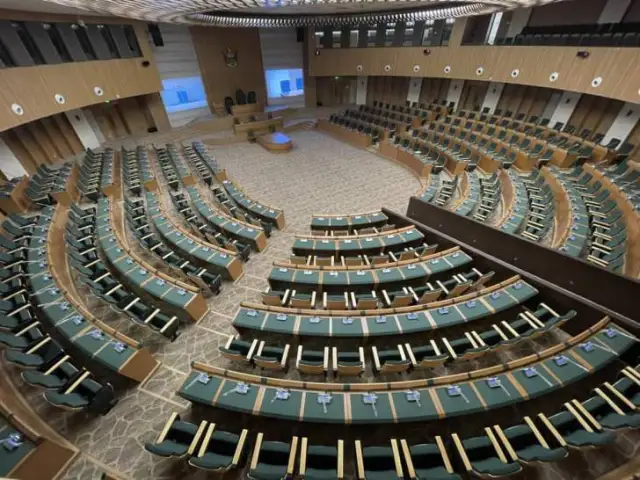The Private Voluntary Organisations (PVO) Amendment Bill [H. B. 2, 2024] has gone through a second reading in Parliament with the government advocating for an expeditious streamlined registration process to prevent fraud, claiming charities were racing to register as trusts.
This was raised by Justice, Legal and Parliamentary Affairs, Ziyambi Ziyambi on behalf of the Minister of Public Service, Labour and Social Welfare, July Moyo, during the Second Reading of the PVO Amendment Bill in Parliament on Thursday.
Ziyambi said when the Bill was first introduced, the Financial Action TaskForce, the world’s money laundering police, stated that some charitable trusts are misused to channel funds to fund terrorism and other criminal activities, as well as laundering criminal activities proceeds by buying properties in Zimbabwe and elsewhere.
The justice minister insisted the Bill is necessary to improve the administration, accountability and transparency of charities in Zimbabwe.
“The legal word for charity in our country is Private Voluntary Organisation. Under our law, every charity that uses money collected from the public or donated from a foreign Government or agency is required to be registered as a PVO in terms of the Private Voluntary Organisation Act, which Bill is before you and that is the Bill we seek to amend,” Ziyambi said.
However, opposition members were against the Bill saying the government could not bring such a bill when it had just extended a begging bowl to feed citizens and that private voluntary organisations have done extreme work, including capacitation of Parliament itself while ruling MPs claimed NGOs pretended to help people yet had ulterior motives.
Ziyambi acknowledged the support that NGOs provided but said few may be tempted to use the guise of charity to carry out undesirable, harmful activities.
He claimed the government is aware some charities acted in a politically partisan manner by directing money to favoured political parties or candidates.
“Partisan assistance using foreign money or money collected from the public under the guise of charity must never be allowed to influence the outcome of national or local elections,” Ziyambi said.
“In many developed countries, this kind of behaviour is understood to be harmful to the very idea of charity. In the United States, you cannot register any organisation as a non-profit organisation for tax purposes if that organisation campaigns or canvasses for any political candidate or party.”
In that context, Ziyambi stated the PVO Bill seeks to clean up the space in which PVOs may operate, adding the government knew for some time that some charities have completely bypassed the Private Voluntary Organisations Act by forming “trusts” sanctioned by the Registrar of Deeds, Companies, and Intellectual Property.
Ziyambi said any trust registered for “charity purposes,” using foreign money not generated by their own activities or investments, or using money collected from members of the public at large, must be required to register as a PVO under the Private Voluntary Organisations Act for accountability on the sources of their funds and use.
“It was realised that the procedures for registration under the Act need to be streamlined and expedited. This is why some of these charities have chosen the route of forming trusts sanctioned by the Registrar of Deeds, Companies and Intellectual Property,” Ziyambi said.
“We cannot run the risk of charities of a public character being used as a cover for theft, embezzlement, tax evasion, money laundering or partisan political activity.”
Opposition MP, Edwin Mushoriwa said assuming the Bill was meant to comply with the Financial Action Task Force, the point was the government should actually work with civic societies to curb terrorist funding, money laundering.
“This Bill wants to make sure that it attacks the foundation of private voluntary organisations,” he said.
“This Bill does not seek to streamline administrative procedures. In fact, this Bill will make it even extremely difficult for PVOs to operate.”
Mushoriwa argued the Bill gives the Minister too much powers, contrary to the provisions of Section 68 of Zimbabwe’s Constitution.
“This is actually very dangerous to give the Minister a blank cheque, not only to cover the current PVOs, but it also gives the Minister to bring other institutions that are not currently under the ambit of this Bill,” he said, claiming the government just wanted to prevent PVOs from undertaking political lobbying.
Another opposition MP, Caston Matewu, said the Bill could allow the Registrar to terminate contracts of employment for NGO employees.
“How does a Registrar go into a private NGO and terminate employment contracts of them? This is unheard of,” he said.
“The Bill also introduces civil and criminal penalties which can be imposed on the board members that will discourage the rightful people, the philanthropists from actually associating with any NGO as they fear the law can be used against them.”
Howeve,r Zanu PF MP, Benjamin Ganyiwa said Zimbabwe was once colonised and most of the NGOs are funded by those colonisers, therefore their ulterior motives must be questioned.
“What are they seeing in our nation? We are representing people in the constituencies and you will see some of the NGOs coming, pretending to want to help people but they have ulterior motives and want to be helped themselves,” he said.
Zanu PF MP Taurai Dexter Malinganiso added even though Zimbabwe does not have terrorism, it could not stop Zimbabwe from enacting laws deterring such.
“We have just discovered oil, we have just discovered gas, and these minerals have been known to be a cause of a sponsored uprising for that matter and in recent history, we have Nigeria where there is ISIS. If we do not have such laws, organisations that are seemingly conventional might be abused for the purpose of sponsoring instability and in our case, for purposes of regime change as always has been the case,” he said.

